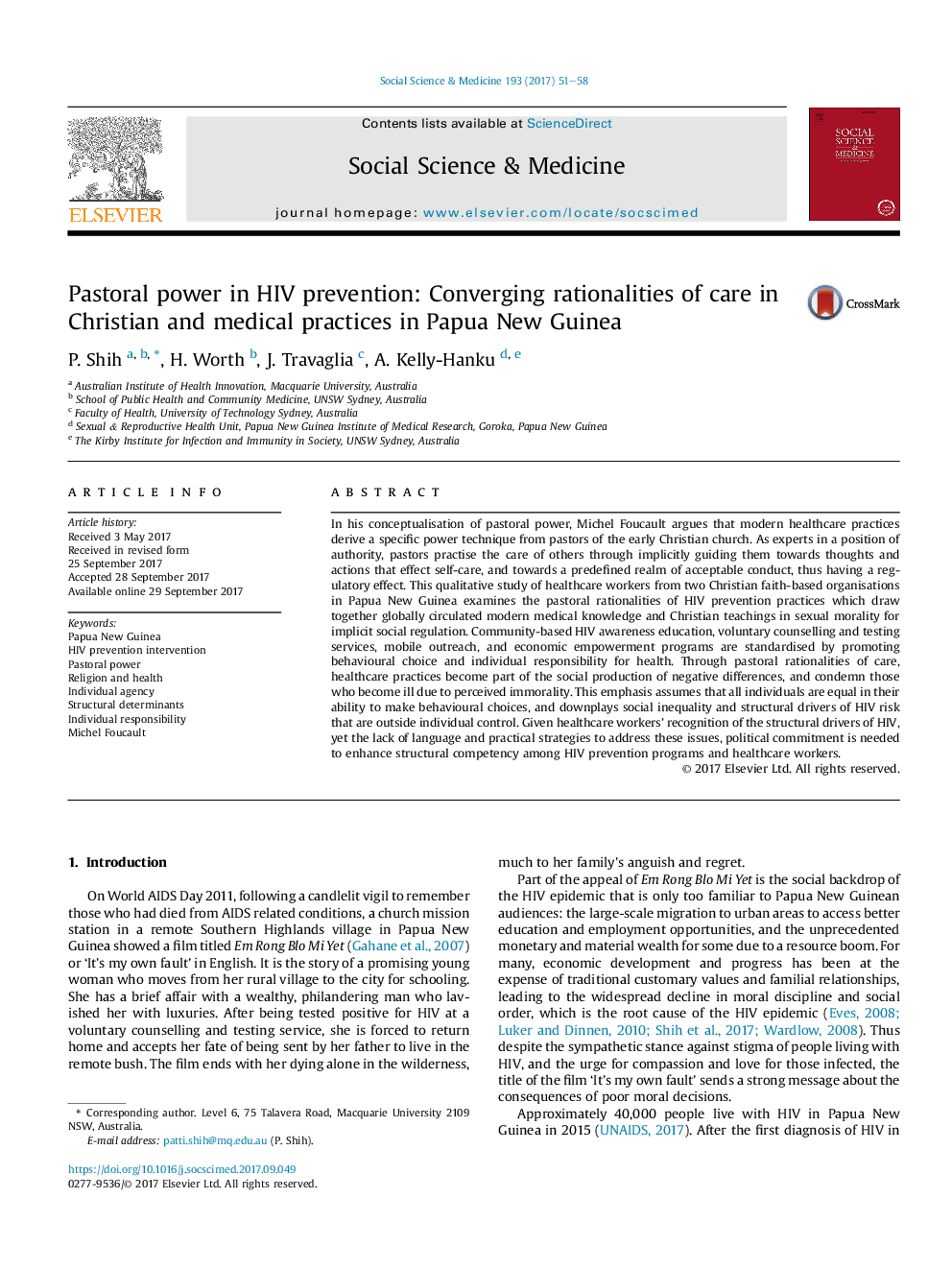| کد مقاله | کد نشریه | سال انتشار | مقاله انگلیسی | نسخه تمام متن |
|---|---|---|---|---|
| 5046347 | 1475976 | 2017 | 8 صفحه PDF | دانلود رایگان |
- Application of Foucauldian pastoral power theory to empirical qualitative study.
- HIV prevention practices reconnect modern medical knowledge and Christian teachings.
- Pastoral rationalities of care promote behavioural choice and self-responsibility.
- Highlight individual and social regulatory effects of HIV prevention practices.
- Recommend a focus on improving structural competency in HIV prevention programs.
In his conceptualisation of pastoral power, Michel Foucault argues that modern healthcare practices derive a specific power technique from pastors of the early Christian church. As experts in a position of authority, pastors practise the care of others through implicitly guiding them towards thoughts and actions that effect self-care, and towards a predefined realm of acceptable conduct, thus having a regulatory effect. This qualitative study of healthcare workers from two Christian faith-based organisations in Papua New Guinea examines the pastoral rationalities of HIV prevention practices which draw together globally circulated modern medical knowledge and Christian teachings in sexual morality for implicit social regulation. Community-based HIV awareness education, voluntary counselling and testing services, mobile outreach, and economic empowerment programs are standardised by promoting behavioural choice and individual responsibility for health. Through pastoral rationalities of care, healthcare practices become part of the social production of negative differences, and condemn those who become ill due to perceived immorality. This emphasis assumes that all individuals are equal in their ability to make behavioural choices, and downplays social inequality and structural drivers of HIV risk that are outside individual control. Given healthcare workers' recognition of the structural drivers of HIV, yet the lack of language and practical strategies to address these issues, political commitment is needed to enhance structural competency among HIV prevention programs and healthcare workers.
Journal: Social Science & Medicine - Volume 193, November 2017, Pages 51-58
